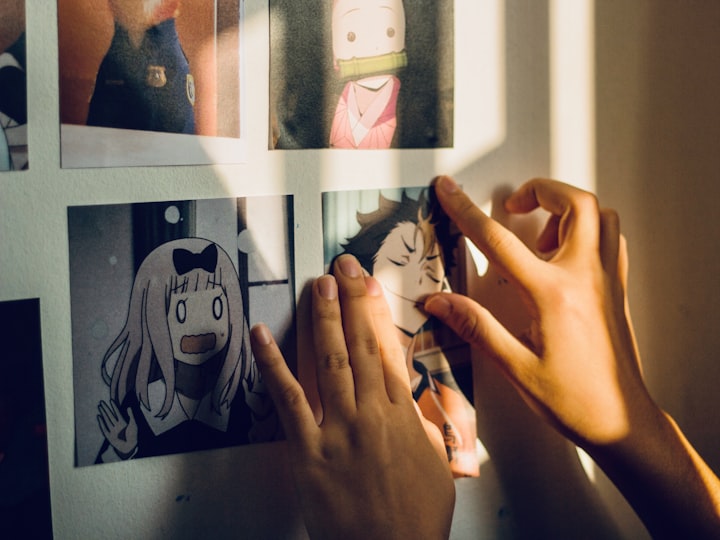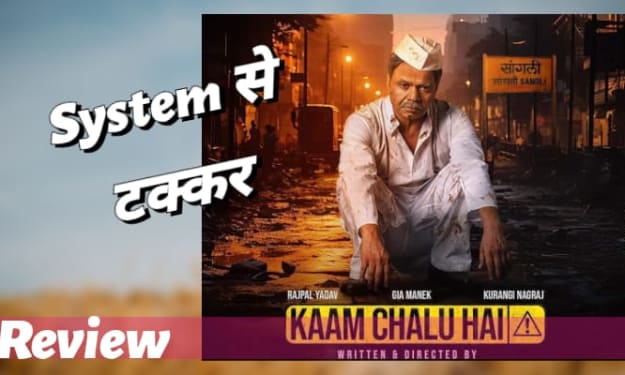
I know, I know... grab your torch and pitchforks, she just said: "are movie clichès really that bad?" I know I'm going to have one of the most disliked opinions on the internet, but hear me out. I have a good argument about various clichès that we find in movies, books, TV shows, video games, and other types of media. The various clichès in various books, movies, TV shows, video games, and other media have an ingrained purpose in the overall human psyche. In my humble opinion, clichès are needed in our media.
Clichès seem to be the one major problem every critic, that has ever walked the planet seems to have with any sort of storytelling. I'm sure there was a critic in the stone ages, back with the cavemen, that even picked on clichès painted on the cave walls like "There's too much bison in this painting, bison have become so clichèd!" I'm joking here, but you see my point. People and critics pick on clichès so much that, that in itself has become a clichè.
I argue that clichès have a purpose, even if they are overused. Clichès have a cathartic effect. Catharsis(or katharsis) is Greek for purifying or to purge. Aristotle used it as a metaphor for criticism (see what I said about critics being around since the stone age!) about tragedy helping to purge someone of terror and pity. Another critic, Gotthold Lessing, had a philosophy that catharsis changes excess emotions into a mood for a higher moral standard.* Most sources that I looked up for reference about catharsis in a philosophical way connected it to tragedy or the purging of fear and pitty. The general definition of catharsis as defined by the Merriam-Webster dictionary reads:
Catharsis—1a: purification or purgation of the emotions (such as pity and fear) primarily through artb: a purification or purgation that brings about spiritual renewal or release from tension2: elimination of a complex by bringing it to consciousness and affording it expression 3: PURGATION **
Let's take that first definition: "purification or purgation of the emotions (such as pity and fear) primarily through art" and apply it to clichès. If you think about it any clichè can be cathartic because we can apply emotion to it, even if it is the most well-known and overused clichè. Let's take the clichè that the good triumphs over evil for an example. This clichè has to be one of the most well known, to anyone who consumes media of any kind. Many people are so sick of this clichè that they complain about it. I only googled "overused clichès + 'good always triumphs over evil'" and there were at least 72 hits. Most people hate this clichè because it is used so often and that it paints the world in black and white. It's used from children's media to graphic, bloody and gory adult media. This clichè has a purpose though. It shows people that in their fantasies they can get the justice they crave and that, in itself can be very cathartic. It purges the emotions of frustration in an unjust world. It purges the feeling that bad will always win. It elevates our hearts, that maybe, even though its a movie, book, graphic novel, or TV show, that there could possibly be justice in our world, that maybe the world isn't so bad.
This effect could last an hour after consuming media to possibly a whole 24 hour period, it in a sense has been cathartic to the viewer/reader/consumer. It doesn't matter if it's overused it appeals to our more primal need to know that good is better than evil and thus good will triumph over evil, even if that is not necessarily the case in everyday life. This (even if it's false) gives us a sense of hope and goodwill in the world for a little while, and could even brighten up a pretty bad day. I know it does for me.
There are clichès that fall on the other end, instead of giving hope and a sense of goodwill, and purging us of the sour mood that the world is a bad place and that evil triumph over good, there are clichès that follow a darker path. These clichès either are connected to a horror movie trope, like the villain isn't really dead at the end of the film,*** or connected to the villain in general for example having a crappy childhood.**** These kinds of backstories can evoke a sense of empathy for the villain of the piece, or fear/dread as in the villain not being dead at the end. These kinds of clichès have a purpose. These two types on the extreme end, help you double think about trusting people first thing, or know that bad things might come back to haunt you. In real life something coming back to haunt you may be childhood trauma's, a break-up, or even a really bad day, while in a horror film, its Jason rising from Crystal Lake, or Michael Meyers rising from the dead to kill Jamie Lee Curtis once again on the night of Halloween. These "tropes" purge us of our feelings of dread and anxiety for a small amount of time. See? Catharsis.
The catharsis argument is just one that I have for clichès in general. I love clichès because they instill a sense of familiarity between all stories that have been told. Many clichès are also morals of the story, like Look before you leap. This clichè` is also the moral of one of Aesop's Fables. This clichè is a good one, it teaches the viewer/reader/consumer to be careful, and that when you leap there isn't always going to be a platform of some kind to catch you. Another good example that I've heard through the grapevine is don't judge a book by its cover, this is basically translated to instances in media where the protagonist looks scary, ugly, weak, unpleasant and is actually very sweet, or on the other end the villain looks sweet, is charming and is disarming. Aesop's fables phrased the moral more like "Fine feathers don't make fine birds." It's the same sort of thing. Its Quasimoto in the bell tower of Notrè Damè, Beast in Beauty and the Beast, its all the poor mousie girls who get made over in teen movies. Its the weakest looking characters, who actually end up having massive strength. Clichès have a place.
Clichès have a purpose, especially in children's media. Let me ask you a question: How did you learn what clichès were? Were you born having the innate knowledge that every movie, book, tv show, et cetera you were to consume through your life would be chocked full with clichès? No, none of us were. The purpose of clichès in children's movies is to teach children what those clichès are. To make them familiar to them, and to make a story more simple for them to understand. Good always triumphs over evil, the hero gets the girl, the villain monologues, the damsel in distress that needs to be saved, always be yourself, et cetera. Kids need simple and repetitive clichès to understand the world through. As adults we know better, that the good guy doesn't always get the girl, that good doesn't always win, the girl certainly doesn't always need to be saved, but its the moral message that counts. Kids are learning how to live in the world, and how to follow rules, how to be good, how to help others. Kids don't pop out of the womb knowing how to be moral and just. These clichès and tropes can be used as examples and teaching tools for parents to teach kids how to be good. They can also help children to understand what a basic kind of evil can look like. For example, a common villain/hero clichè is that the villain will always do something bad, and the hero will always catch him/her and lock them away in jail, no matter how many times the villain breaks out of jail, or prison, or comes back from banishment. This tells children, that if you do bad things you will be punished, most children need that re-enforcement.
Aside from helping parents teach moral lessons clichès in children's movies, teaches children what clichès are out there, sooner or later a child will pick up on them. It may not be obvious at first, but they will start asking questions. Most kids start asking stuff like, "Why does the bad guy even try? They know that Batman is always going to stop them!" This is the start of critical thinking skills. This is a great thing to enforce, but not only that they are also starting to pick up on patterns. These storytelling devices also play into their pretend play, they'll start seeing themselves as the hero, and whatever bad thing that is happening to them (even if it's just being mad at Mom and Dad) is the villain or the problem they have to solve. Clichès give them a way to tell their story. Children benefit from clichès.
I'd love to break the clichè that clichès are bad. I'd love to break the cycle of cynicism towards clichès, and usher in a new age where, yes we can playfully poke and prod at clichès, but appreciate them for what they are and what they do. I personally love clichès and love to point them out. Sometimes I'm making fun of them, other times I'm enjoying them because they truly unify the world of fiction and non-fiction alike. Clichès are a gift.
I leave you with this thought: subverting clichès will become in itself, a clichè.
Sources:
*Encyclopedia Brittanica Online
***Roadshow
****Writers Edit
About the Creator
Anastasia Barth
A woman, mother, survivor. If you like the eclectic, then you've come to the right place. Everything you can think of, I will most likely talk about at once point or another.






Comments
There are no comments for this story
Be the first to respond and start the conversation.